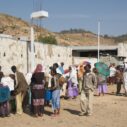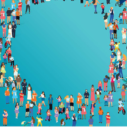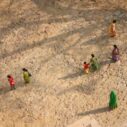
Search
Articles

Multidimensional poverty in Mexico in the context of the COVID-19 health emergency
The methodology of multidimensional measurement of poverty in Mexico links two analytical spheres: economic wellbeing and social rights. The latter includes indicators of social deprivations (education lag, access to health services, access to social security, housing quality and housing spaces, access to utilities at home, and access to nutritious and quality food.)

Oaxaca: the largest decline of multidimensional poverty and extreme poverty in a decade
In 2021, Mexico’s National Council for the Evaluation of Social Development Policy (CONEVAL) presented the results of the most recent multidimensional measurements of poverty at the state and municipal levels for 2020. As far as the results of state poverty are concerned, this is the second measurement made during the administration of Governor Alejandro Murat Hinojosa.

The intersection of gender, forced displacement, and multidimensional poverty
Internally displaced persons (IDPs) disproportionately suffer chronic deprivations, such as food insecurity, temporary housing, and limited access to services and employment. Women and girls in forced displacement also face increased vulnerabilities, including greater health and gender-based violence risks than their male peers. To evaluate the intersection of forced displacement, multidimensional poverty, and gender, we developed a gender-sensitive Multidimensional Poverty Index (MPI) for forcibly displaced populations in five Sub-Saharan African countries: Ethiopia, Northeast Nigeria, Somalia, South Sudan, and Sudan.

Finance and multidimensional poverty: harnessing the former to eliminate the latter
In February 2022, Citigroup and SOPHIA Oxford launched a report presenting a robust social metrics framework for Environmental, Social and Governance (ESG) investing and impact assessment using a multidimensional poverty approach.

Using the MPI to maximise equitable programming in a flagship sexual and reproductive health programme
MSI Reproductive Choices is made up of 9,000 team members working across 37 countries to deliver compassionate, high-quality sexual and reproductive healthcare for all. We currently serve more than 75,000 people daily with services and products, and an estimated 34 million women and girls worldwide use a method of contraception provided by us.












